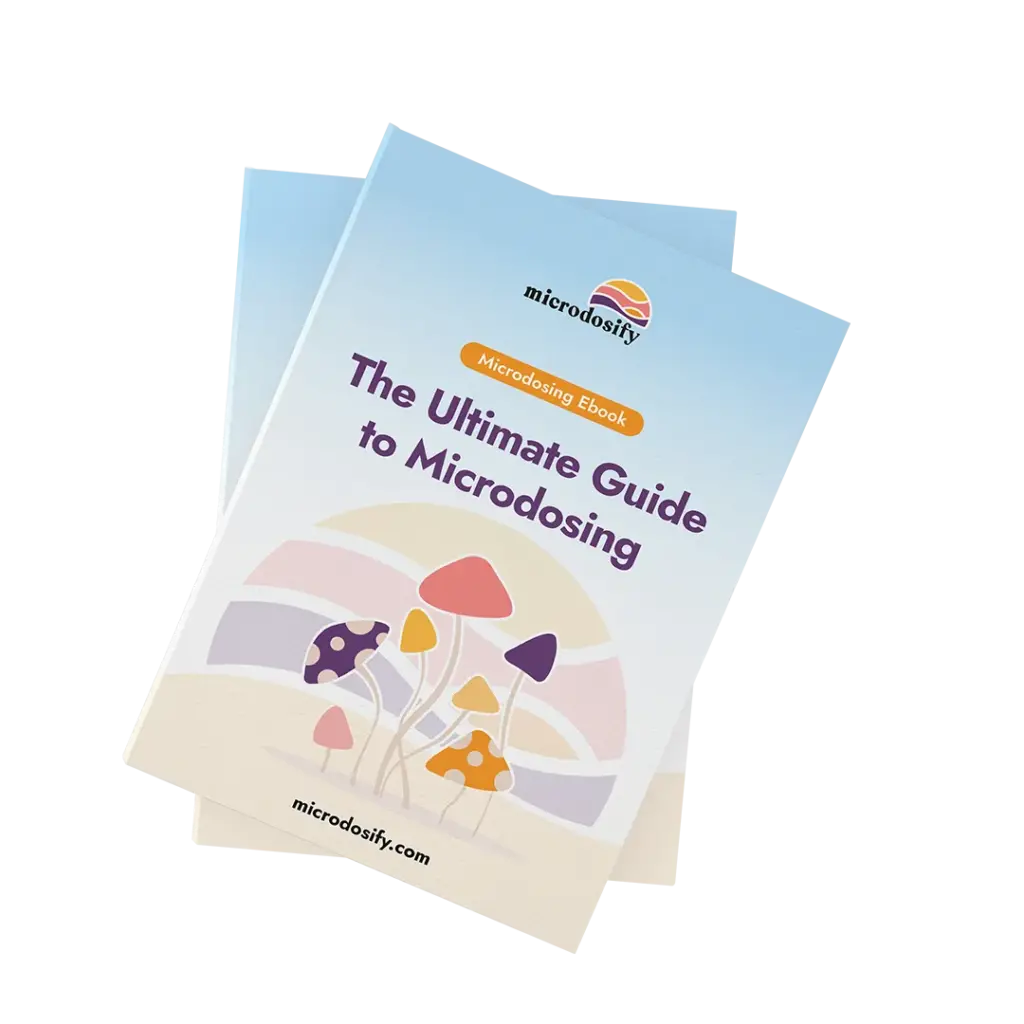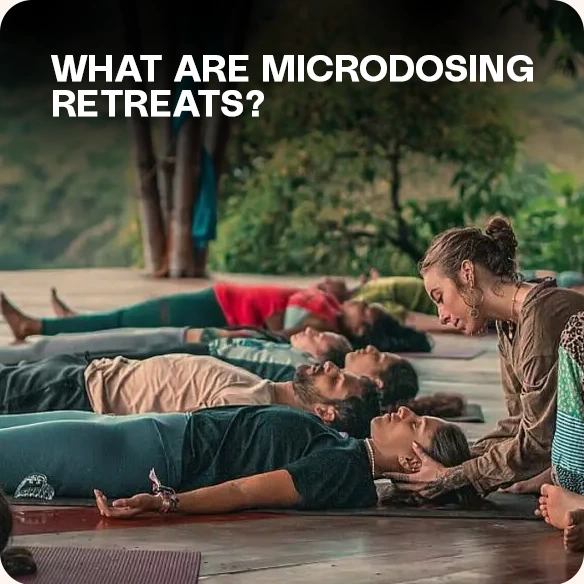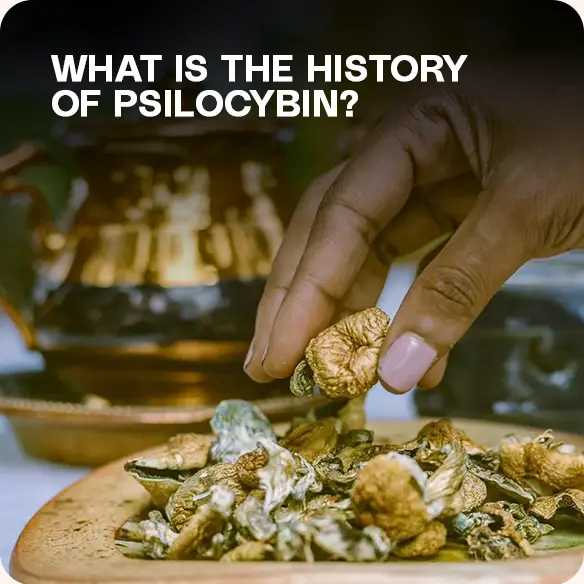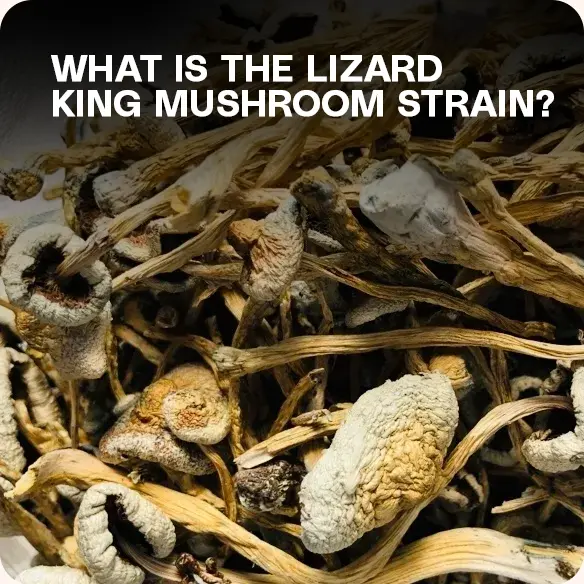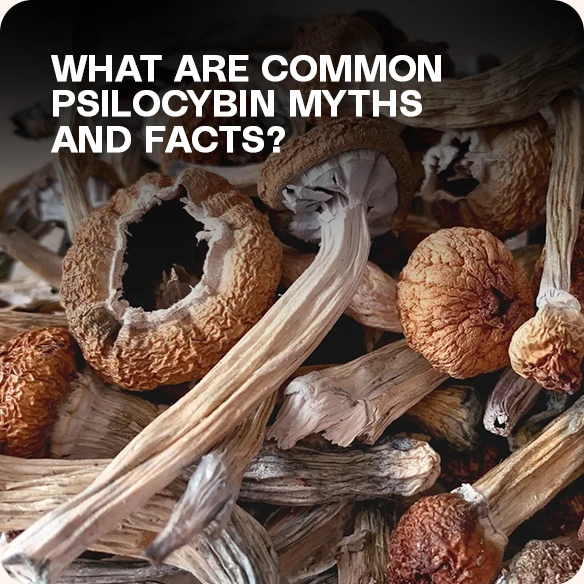Microdosing retreats are 3-7 day programs where participants take sub-perceptual psilocybin doses (0.1-0.5 grams) daily under professional guidance while engaging in integration activities including therapy, meditation, and education.
These retreats cost $1,500-4,000 and operate in legal jurisdictions including Netherlands, Jamaica, and increasingly in Oregon and Colorado.
Unlike full-dose psilocybin retreats causing altered consciousness, microdosing retreats allow participants to maintain normal functioning while exploring subtle cognitive and emotional benefits.
Key Points
- Typical Duration: 3-7 day programs with daily microdoses
- Dose Range: 0.1-0.5 grams dried psilocybin mushrooms per dose
- Cost: $1,500-4,000 depending on location, accommodation, and program length
- Daily Schedule: Morning dosing followed by integration activities, therapy, education workshops
- Participant Capacity: 8-20 people per retreat with 2-4 facilitators
- Legal Locations: Netherlands, Jamaica, Oregon, Colorado primarily
- No Hallucinogenic Effects: Sub-perceptual dosing means no visual distortions or altered consciousness
How Do Microdosing Retreats Work?
Participants receive measured microdoses each morning (typically 0.2-0.3 grams) followed by structured activities exploring the subtle effects.
The daily schedule balances education, personal reflection, group interaction, and integration practices rather than the passive introspection characterizing full-dose retreats.
Typical Daily Schedule
| Time | Activity | Duration |
|---|---|---|
| 7:00-8:00 AM | Morning meditation and intention setting | 60 minutes |
| 8:00-8:30 AM | Microdose administration with light breakfast | 30 minutes |
| 9:00-11:00 AM | Educational workshop on microdosing science, protocols, integration | 120 minutes |
| 11:00 AM-1:00 PM | Creative activities, nature walks, or free exploration | 120 minutes |
| 1:00-2:00 PM | Lunch and social integration | 60 minutes |
| 2:00-4:00 PM | Group therapy, sharing circles, or individual sessions | 120 minutes |
| 4:00-6:00 PM | Yoga, breathwork, or movement practices | 120 minutes |
| 6:00-7:00 PM | Dinner | 60 minutes |
| 7:00-8:30 PM | Evening integration, journaling, group discussion | 90 minutes |
This structure repeats for 3-7 consecutive days. Some retreats include rest days without dosing to prevent tolerance buildup and allow processing of accumulated insights.
Microdosing Retreats vs Full-Dose Retreats
The primary difference involves intensity and participant functionality during experiences.
Full-dose retreats involve 1-3 ceremonial sessions with 3-5 gram doses causing profound altered states, while microdosing retreats involve daily sub-perceptual doses allowing normal conversation, physical activity, and learning.
| Aspect | Microdosing Retreats | Full-Dose Retreats |
|---|---|---|
| Dose per Session | 0.1-0.5 grams | 3-5 grams |
| Number of Doses | 3-7 (daily) | 1-3 (ceremonial) |
| Effects | Subtle mood/cognition shifts | Profound altered consciousness |
| Functionality | Fully functional | Unable to perform normal tasks |
| Activities | Workshops, hiking, yoga, therapy | Lying down with music, minimal activity |
| Duration | 3-7 days | 5-10 days |
| Cost | $1,500-4,000 | $3,000-8,000 |
| Best For | Gentle exploration, lifestyle integration | Deep psychological work, breakthrough experiences |
Where Are Microdosing Retreats Located?
The Netherlands leads microdosing retreat availability due to legal psilocybin truffle access. Amsterdam and surrounding regions host 15+ retreat centers offering structured microdosing programs.
Jamaica follows with 8-10 centers, while Oregon and Colorado are developing programs under new legal frameworks.
Netherlands Microdosing Retreats
Dutch retreats capitalize on legal psilocybin truffle sales from smartshops.
Programs cost $1,500-3,000 for 3-5 day experiences including accommodation, meals, and facilitation. Amsterdam-based retreats emphasize harm reduction and scientific education alongside experiential components.
Notable Netherlands retreat centers include Synthesis (Amsterdam), MycoMeditations Netherlands, and several smaller boutique operations.
Programs run year-round with English-speaking facilitators serving international participants.
Jamaica Microdosing Retreats
Jamaican retreats offer oceanfront settings with psilocybin mushrooms being fully legal. Costs range $2,000-4,000 for 5-7 day programs.
Longer duration reflects travel time for international participants and typically includes additional full-dose ceremonial sessions alongside microdosing days.
Jamaican programs blend microdosing with traditional full-dose ceremonies, offering comprehensive exploration unavailable in locations where only microdosing occurs.
Montego Bay and Negril host primary retreat centers.
United States Microdosing Retreats
Oregon and Colorado launched legal microdosing programs in 2023-2024 under state psilocybin service frameworks. Programs cost $2,000-4,000 for 3-5 days.
Domestic options eliminate international travel requirements and passport complications for US participants.
US retreats emphasize therapeutic models with licensed mental health professionals rather than wellness or spiritual frameworks common internationally. Stricter regulations create higher operating costs reflected in pricing.
What Do You Learn at Microdosing Retreats?
Educational components cover microdosing protocols, neuroscience, integration techniques, and personalized routine development.
Retreats teach participants to continue microdosing safely and effectively after leaving.
Core Educational Topics
- Dosing protocols: Fadiman protocol (1 day on, 2 days off), Stamets protocol (4 days on, 3 days off), and customization
- Measuring doses: Proper scale use, capsule preparation, consistency maintenance
- Strain differences: Potency variations between mushroom types (Golden Teacher, B+, Penis Envy)
- Tracking methods: Journaling systems, mood tracking apps, identifying patterns
- Safety screening: Medication interactions, mental health contraindications, when to stop
- Legal considerations: Understanding local laws, sourcing options, risk reduction
- Integration practices: Meditation, therapy, lifestyle changes amplifying benefits
- Tolerance management: Preventing diminished effects through proper cycling
Therapy and Personal Development
Group therapy sessions explore participants’ goals, obstacles, and insights emerging during microdosing days.
Individual counseling addresses specific mental health concerns, relationship patterns, or career challenges participants hope microdosing supports.
Common therapeutic themes include anxiety reduction, depression management, creative blocks, relationship communication, and professional performance optimization.
Therapists help identify whether microdosing genuinely helps these areas or whether other interventions would prove more effective.
Who Should Attend Microdosing Retreats?
Ideal candidates include people curious about psychedelics but uncomfortable with full-dose intensity, those seeking lifestyle integration focus over breakthrough experiences, and individuals wanting professional guidance establishing microdosing practices.
Good Candidates
- First-time psychedelic users wanting gentle introduction
- People managing mild-moderate depression or anxiety
- Creative professionals seeking enhanced productivity
- Those interested in long-term microdosing practice
- People uncomfortable with loss of control in full-dose experiences
- Individuals seeking community and education alongside experience
- Business professionals unable to take extended time for full retreats
Poor Candidates
- People seeking profound mystical or spiritual experiences (better suited for full-dose retreats)
- Those with psychosis history or schizophrenia family history
- Current SSRI users (SSRIs block psilocybin effects even at microdoses)
- People with severe, treatment-resistant mental health conditions requiring intensive therapy
- Those expecting immediate, dramatic life changes from subtle effects
- Individuals unable to commit to post-retreat integration practices
How Much Do Microdosing Retreats Cost?
Costs range $1,500-4,000 depending on location, duration, accommodation quality, and included services. Breaking down expenses helps evaluate value:
Cost Components
| Component | Percentage of Total | Typical Cost |
|---|---|---|
| Accommodation (3-7 nights) | 25-35% | $400-1,200 |
| Facilitation and therapy | 30-40% | $500-1,400 |
| Meals (3 daily for 3-7 days) | 15-20% | $250-700 |
| Psilocybin supply | 5-10% | $100-300 |
| Activities and materials | 10-15% | $150-500 |
| Administrative costs | 5-10% | $100-300 |
Additional Expenses
- Travel: $400-1,500 for international flights to Netherlands or Jamaica
- Travel insurance: $50-150 for 7-day coverage
- Pre-retreat medical clearance: $100-300 if required
- Post-retreat integration therapy: $150-250 per session (4-8 sessions recommended)
- Microdosing supplies for home: $50-200 monthly depending on source and dosing frequency
Total investment including travel and follow-up typically ranges $2,500-6,000 for international retreats, $2,000-4,500 for US domestic programs.
What Results Can You Expect?
Research shows 60-70% of microdosing retreat participants report improved mood, creativity, and focus during programs, though placebo effects remain difficult to separate from pharmacological benefits.
Long-term outcomes depend heavily on continued practice and integration after retreats.
Reported Benefits During Retreats
- Mood improvements: 65% report reduced anxiety and depression symptoms
- Cognitive effects: 55% notice enhanced focus and mental clarity
- Creativity increases: 60% report more novel ideas and problem-solving
- Social connection: 70% feel more empathetic and socially engaged
- Physical well-being: 45% notice improved energy levels
Sustaining Benefits Post-Retreat
Benefits decline if participants stop microdosing after retreats without establishing home practices. Studies show 40% of retreat participants continue microdosing 6 months later, with this group maintaining reported benefits.
The 60% discontinuing typically return to baseline mood and cognition within 2-4 weeks.
Retreat value thus depends partly on establishing sustainable microdosing routines participants can maintain independently.
Programs emphasizing practical protocol development and sourcing education produce better long-term outcomes than those focusing primarily on retreat experiences.
Microdosing Retreats vs DIY Microdosing at Home
The primary retreat advantages include professional guidance, community support, education, and dedicated focus time unavailable during normal daily routines. Home microdosing costs significantly less but lacks these structured elements.
| Aspect | Retreat Microdosing | DIY Home Microdosing |
|---|---|---|
| Cost | $1,500-4,000 initial | $50-200 monthly |
| Professional Guidance | Therapists, facilitators, medical screening | Self-directed or online resources |
| Education | Comprehensive workshops and materials | Books, articles, online forums |
| Community | Cohort support and shared experience | Isolated unless finding local groups |
| Quality Control | Measured, tested doses | Variable unless self-testing |
| Legal Risk | None in legal jurisdictions | Varies by location (illegal most places) |
| Integration Support | Built into program | Requires finding separate resources |
Frequently Asked Questions
Do microdosing retreats really work or is it placebo?
Controlled research shows microdosing effects are difficult to distinguish from placebo, with some studies finding no statistical difference between psilocybin and placebo microdoses on cognitive tests. However, participants consistently report subjective benefits whether receiving psilocybin or placebo. Retreats may work through combination of mild pharmacological effects, expectation, ritual, community support, and dedicated self-reflection time rather than psilocybin alone.
Can I microdose at a retreat if I’m on antidepressants?
SSRIs significantly reduce or eliminate psilocybin effects even at microdoses. Most retreats require 4-6 week SSRI washout periods before attendance. Never discontinue psychiatric medications without physician supervision. Some retreats accommodate participants on non-SSRI antidepressants like Wellbutrin that don’t interfere with psilocybin.
Will I feel high or hallucinate during microdosing retreats?
Properly dosed microdoses produce no hallucinations or significant altered consciousness. Effects remain sub-perceptual, meaning you function normally while possibly noticing subtle mood elevation, enhanced colors, or increased mental clarity. Retreats carefully measure doses to avoid perceptual changes interfering with daily activities.
How do I continue microdosing after the retreat ends?
Retreats teach sourcing methods, measuring techniques, and protocols for continued practice. Options include cultivating mushrooms (legal in some jurisdictions), finding local sources (illegal most places), or traveling periodically to legal locations for supply. Legal limitations remain the primary obstacle for most participants wanting to continue microdosing at home.
Are microdosing retreats worth the cost?
Value depends on individual goals and available alternatives. Retreats provide concentrated education, professional guidance, and community that DIY approaches lack. However, similar benefits may be achievable through books, online courses ($100-500), and local integration groups at fraction of retreat costs. Retreats work best for people valuing immersive experiences, professional accountability, and international travel components.
